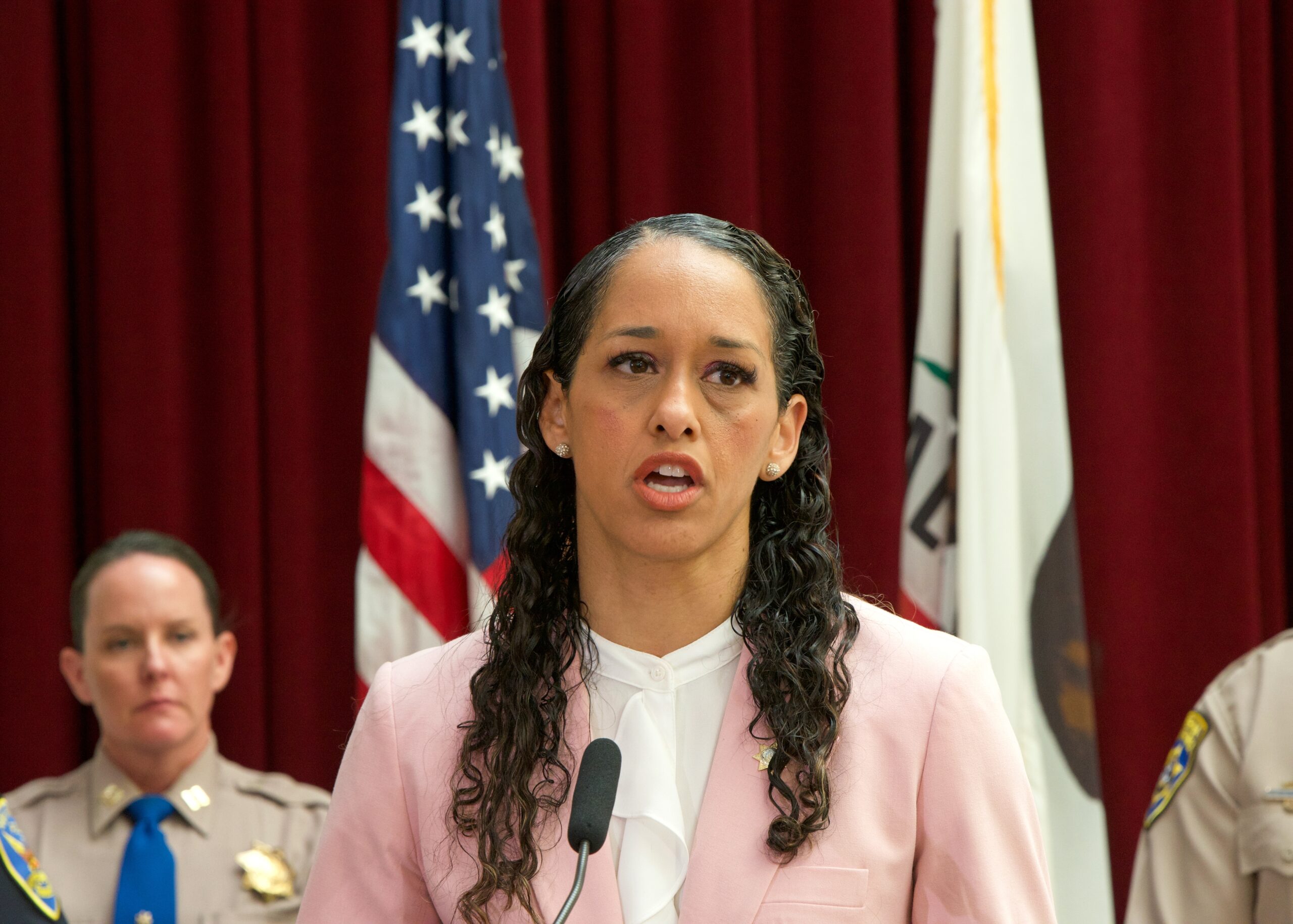Data Undercuts Key Law Enforcement Claim About San Francisco’s Fentanyl Trafficking Crackdown
San Francisco’s top prosecutor says massive resources are needed to rebut human trafficking defenses, but it’s hard to find many instances where that has happened.
This story was published in partnership with The Huffington Post.
In late April, California Gov. Gavin Newsom announced a massive mobilization of state and local law enforcement agencies aimed at disrupting large-scale fentanyl trafficking in San Francisco.
“Today’s partnership will not seek to criminalize those struggling with substance use and instead focus on holding drug suppliers and traffickers accountable,” the governor’s office said of the partnership, which includes the California Highway Patrol, the California National Guard, the San Francisco Police Department and the San Francisco District Attorney’s Office.
Several days afterward, in a press conference flanked by Mayor London Breed and members of law enforcement, San Francisco District Attorney Brooke Jenkins praised the partnership for an unusual reason. She said that “many of our criminal defendants in the area of narcotics dealing are asserting a human trafficking defense,” and that “requires significant evidence on our part in order to rebut that defense.”
Jenkins said she was “very excited at the prospect of having additional resources to be able to dispel the notion that people are not here dealing drugs of their own accord, because that is clearly what is happening.”
Jenkins’ ire may have been raised by two recent drug trafficking cases that went to trial in which jurors heard the accused ― both immigrants from Honduras ― and their attorneys make a human trafficking defense. The defendants explained that they were forced to sell drugs under fear and coercion from criminal trafficking organizations, and that they owed human smugglers, known as coyotes, considerable sums of money they had to pay back. In both trials, the result was a hung jury and the defendants walked away free from charges.
But according to data provided to HuffPost by the San Francisco Public Defender’s Office, those cases are rare ― indeed they’re exceptions to the rule ― calling into question one of Jenkins’ stated justifications for concentrating a massive policing effort on her city.
Since 2015, just 16 cases involving drugs as the most serious charge went to trial. According to data from the San Francisco DA’s data dashboard, the office has brought nearly 5,000 narcotics cases since 2015. So if about 16 out of 5,000 went to trial during that period, that means all but 0.34% of narcotics cases ended in a plea bargain, dismissal, refusal or some other means to resolve the case. In other words, there are just not many instances where mounting human trafficking as a legal defense at trial could have even occurred.
It’s possible that human trafficking defenses have been asserted more frequently during plea negotiations. The district attorney’s office did not return a request for comment clarifying whether this is the case ― nor did the office respond to questions about the data on narcotics cases and the number of cases in which a trafficking defense was invoked by defense attorneys.
Plea bargaining allows prosecutors to expend limited resources in their cases; trials are far more costly and resource intensive. About 94% of convictions in state courts are the result of plea deals, according to the group Fair and Just Prosecution. While it’s almost impossible to know how often defendants accused of fentanyl trafficking assert a human trafficking defense pretrial, the defense was mounted in just three narcotics cases that actually went to trial since 2020, according to the San Francisco Public Defender’s Office.
Jenkins’ comments about trafficking also imply that such a defense is inherently fraudulent, which some experts found troubling.
“Public prosecutors are supposed to form their own opinions about someone’s guilt or innocence, but that opinion doesn’t tell us what is true or what is just ― that’s the role that juries are supposed to play,” said Carissa Byrne Hessick, a professor at the University of North Carolina School of Law. “Just because District Attorney Jenkins doesn’t believe someone, doesn’t mean that person should go to jail. The whole point of our constitutional system is that people outside the government ― jurors ― are supposed to make these decisions.”
In one case involving the Honduran immigrants, defense attorneys used Thomas J. Boerman, a Ph.D. who specializes in gang prevention and rehabilitation programs in the U.S. and Latin America and once drafted sections relating to Central American gangs and drug trafficking organizations for the United Nations High Commissioner for Refugees. Boerman testified that people from Central America were often lured to the U.S. by the promise of a legitimate job, only to discover that they would be engaged in drug sales.
Dean Preston, who represents the Tenderloin neighborhood as a member of the San Francisco Board of Supervisors, told HuffPost that it’s not at all clear what new resources the multiagency fentanyl task force has created.
“There’s a lot of theater, a lot of publicity stunts, and it’s very difficult to determine what’s new,” Preston said. “There’s certainly a ramping up of the tough-on-crime, war-on-drugs rhetoric, that’s clear.”
Preston said he’s concerned about the prospect of law enforcement and the military descending upon his district, but so far, he said, it’s “kind of a nothing burger.”

